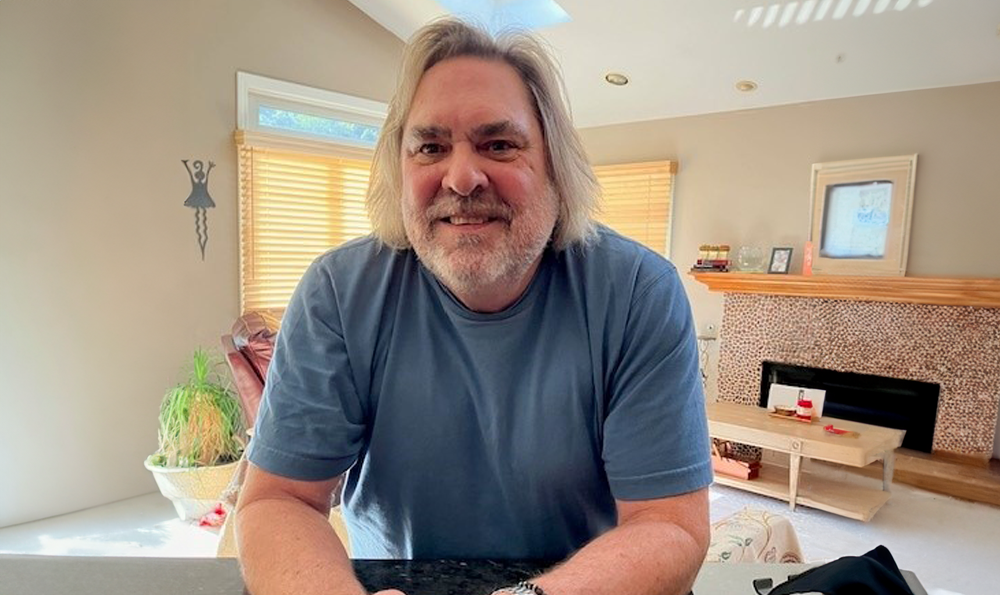A new treatment approach for atrial fibrillation helped one patient get moving again.
Riding his bike one day 12 years ago, Michael C. suddenly noticed his heart racing.
“I was about a mile from my house when my heart started to feel like it was pounding out of my chest,” he says. “I couldn’t pedal anymore. I had to dismount and sit down on the curb.”
The 62-year-old recalls thinking that something had felt off for a little while, but he’d ignored it. Once his heart rate had calmed down some, Michael got back on his bike and rode home.
The next day, he called his doctor.
A novel approach to atrial fibrillation
Michael’s primary care doctor discovered the culprit: an irregular heartbeat. He referred Michael to a cardiologist in Pompton Plains, which is associated with Chilton Medical Center. The cardiologist diagnosed Michael with atrial fibrillation (AFib), a heart rhythm abnormality that affects roughly 5 million Americans.
AFib can feel like a heartbeat that’s quivering, skipping or flip-flopping. The arrhythmia causes blood to pool inside the heart’s upper chambers, instead of pumping out of the heart as it should. The pooled blood can clot and then get pumped out of the heart and into the brain, blocking the brain’s blood supply. The result can be a stroke, heart failure and other health complications.
Michael’s cardiologist prescribed a medication regimen for him, including a blood thinner to decrease the risk of clotting.
When Michael’s medicines weren’t working well to manage his AFib, though, his cardiologist made another referral — this time to Atlantic Health System cardiac electrophysiologist Stephen Winters, MD.
Dr. Winters recommended ablation, a minimally invasive procedure that uses radiofrequency (RF) energy to scar the heart tissue causing the abnormal rhythm.
“Dr. Winters took time to explain things and explain them in ways I could understand,” Michael says. “He really cares about his patients.”
Michael had the ablation, but after a few months, he noticed his AFib symptoms returning. Dr. Winters recommended a second ablation, and Michael agreed. During a test leading up to the procedure, however, a chest X-ray showed Michael had an elevated diaphragm, a condition where one of the two diaphragms is higher than the other, which meant the breathing muscle wasn’t moving as much as it should. The elevated diaphragm was the result of an injury Michael had sustained during a past car accident.
Because there was a risk, although small, that another ablation using RF energy could injure a nerve that runs on the outside of the heart muscle — impairing how well Michael’s other diaphragm could move, as well as potentially causing other serious breathing problems — Dr. Winters decided to pivot. Instead, he recommended a new ablation technique known as pulsed field ablation (PFA), which is associated with practically no risk of injury to surrounding areas.
No symptoms, no lifestyle restrictions
PFA is a new treatment option for AFib offered at Morristown Medical Center. It uses high-energy electrical pulses to scar cells in the heart tissue that cause the arrhythmia while substantially reducing the risk of harm to surrounding areas.
The technique is also associated with reduced procedure times, shorter recovery times and less anesthesia exposure, Dr. Winters says. Plus, because it’s more precise, it’s a better option for someone like Michael, who has a preexisting injury to the nerve that controls movement of the diaphragm.
Michael knew he’d be one of the first patients to undergo the PFA procedure at Morristown, but, he says, “Dr. Winters put me at ease.”
For Michael, the two ablation procedures were basically identical except for one key difference: After the PFA, he hasn’t had any AFib symptoms.
“I’ve gone about my life as I always did before,” he says. “I’m retired, but my wife still works, so I still do the shopping, laundry and pool maintenance, and I still do all the things I enjoy, like meeting my daughters for lunch and going to baseball and football games with my friends. I have no restrictions on my lifestyle whatsoever.”
Be proactive about your health
Staying up to date on annual wellness exams and screenings is important. So too, are the occasional trips to specialists to address sleep issues or any other health concerns that are nagging you.
Know your risk for heart disease in 2 minutes
Take the quiz









